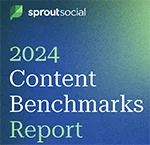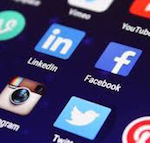 |
| Stuart Muszynski |
This year will be challenging for our nation. The divisions and conflicts that already trouble us will be intensified by the coming elections, most especially the one for President, and the power of digital platforms to spread hate, fear and confusion will be vastly increased by the addition of artificial intelligence to the mix.
Can public relations can help counteract the dissension? Is there an organization with a message that deserves to be highlighted, promoted, spread?
There is such a group: for 30 years, the Ohio-based Values-in-Action Foundation, which has successfully implemented its Kindland programs in schools, businesses and communities in several states. The operating principle is this: Next to unconditional love, the attribute that defines the best in humanity is kindness.
Why should we engage in this seemingly altruistic behavior? What results are obtained by being kind? And how can it be an antidote to what ails America?
Kindness — the quality of being friendly, considerate, and compassionate — has long been regarded as a fundamental human virtue. In an era marked by rapid technological advancements, global interconnectedness, and societal complexities, the significance of kindness is more relevant than ever.
The Kindland programs that have been put into practice in schools, businesses and communities promote the enduring importance of kindness, emphasizing its transformative power and the positive impact it can have on individuals and the world in which they live.
By embracing kindness, individuals can step into others' shoes, acknowledge their struggles and seek to understand their experiences. This empathetic approach nurtures a sense of unity and bridges the gaps that often divide us. It promotes an atmosphere of inclusivity, where people are more inclined to embrace diversity and foster a spirit of acceptance and respect for one another.
Psychologists have said that it takes five positives to offset one negative in the human mind. Because kindness spreads organically and multiplies infectiously in any ecosystem, it builds an awareness of the positives around us instead of the negatives that hit us every day. Kindness inspires a paradigm shift that humanity sorely needs: cup half full as a opposed to a cup half empty.
Furthermore, kindness has the power to inspire positive change. Small acts of kindness can create a ripple effect, sparking a chain reaction of compassion and goodwill.
This domino effect can transcend boundaries and influence broader societal dynamics. This is why Kindland developed the Just Be Kind App that allows users to record acts of kindness they do or see and upload them to social media outlets.
Numerous studies have demonstrated that acts of kindness, whether received or extended, lead to increased levels of happiness, improved mental well-being, and reduced stress. Engaging in acts of kindness activates the brain's reward system, releasing neurochemicals such as dopamine and oxytocin, which contribute to positive emotions and a sense of fulfillment.
When introduced and modeled in northeast Ohio, Kindland attracted more than 150 other nonprofit organizations, 500 community leaders, schools, governments, media organizations and businesses whose employees total more than 100,000.
In the most violent high school in the Cleveland area, John Adams High School, Kindland programming — implemented through faculty and student leaders — increased the graduation rate 43%, reduced suspensions 78% and led to zero fights over a three year period.
The positive effects in workplaces have been measured many times. In analyzing more than 3,500 business units with more than 50,000 individuals, on group of researchers found that higher acts of courtesy, helping, and praise were predictive of productivity, efficiency, and lower turnover rates?
Another study reported that employees who are respectful and kind have 26 percent more energy, 35 percent more satisfaction with their work, and 44 percent more commitment to their organization. A study conducted at Coca-Cola showed that receivers of kindness exhibited more pro-social behaviors in the office and by the end of the study, they were reporting 10 times more pro-social behaviors than the controls.
In essence a culture of kindness creates a positive work environment that is capable of transforming a company. Shawn Achor, CEO of Good Think Inc., wrote on his website that when people work with a positive mindset performance on nearly every level — productivity, creativity and engagement — improves. Importantly positive employees build teams and cultures where people really want to work.
More broadly, and more importantly, kindness has the potential to transcend cultural and societal boundaries. Regardless of differences in language, religion, or nationality, kindness is a universal language that can be understood and appreciated by all. In a world where conflicts and divisions persist, cultivating kindness can serve as a powerful tool for fostering understanding, tolerance, and peace.
How do we go about creating a culture that promotes kindness? The answer will vary depending on the nature of the community, but let me offer some simple and inexpensive ways to start a culture of kindness in the workplace:
• Encourage employees to greet each other with a smile. Smiles improve one’s mood, lower blood pressure, increase endurance and reduce pain and stress.
• Initiate employee recognition programs. Recognized employees feel more valued and appreciated. They are also more motivated and loyal. According to a survey by Harris Interactive, more than 80 percent of employees agreed that recognition improves their experience, relationships, engagement and happiness at work.
• Treat employees as individuals to make them feel more supported and cared for. At Royal Appliance/Dirt Devil, employees responded to Gallup surveys that the most significant aspect of their company was that they received a birthday card from the CEO on their birthday. Also, consider offering flexible work arrangements to improve an employee’s work-life balance, which increases happiness.
• Take the time to listen to employee ideas, sharing positive feedback with staff, finding ways to balance workloads, ensuring inclusion in meetings and most of all reminding employees what you appreciate about working with them.
• Set the example and encourage employees to validate each other every day by doing small intentional acts of kindness: Good Morning, How are you doing today?, Have a nice day — however small - create an ongoing kindness ecosystem.
Surgeon General Vivek H. Murthy has called upon all Americans to act urgently to dissipate “an epidemic” of social disconnectedness and loneliness that are linked to the negative trends plaguing America. He called on leaders, organizations, schools, businesses, media and governments to more intentionally embrace people and enable acts of kindness.
The Surgeon General’s message about making kindness a core virtue is one that deserves to be heard across the United States as well as around the globe. That is, I realize, a major communications challenge. But who is more knowledgeable and more skilled when it comes to communicating messages than the American public relations industry? As we push deeper into 2024, and as the voices of anger and dissension grow louder, what greater public service can the industry provide than the message of kindness?
***
Stuart Muszynski is Founder and President of Values-in-Action Foundation


 What if companies could harness the fury of online outrage into a force for good? This is precisely where companies can start turning the trolls into brand champions.
What if companies could harness the fury of online outrage into a force for good? This is precisely where companies can start turning the trolls into brand champions. Audiences interacted with brand content far more often on Facebook and Instagram in 2023 than they did via X (formerly Twitter), according to a report that tracked engagement trends across different social networks.
Audiences interacted with brand content far more often on Facebook and Instagram in 2023 than they did via X (formerly Twitter), according to a report that tracked engagement trends across different social networks. The number of Americans who get their news from TikTok has quadrupled in the last three years, according to a recent Pew Research Center report.
The number of Americans who get their news from TikTok has quadrupled in the last three years, according to a recent Pew Research Center report. Many young people today now prefer social media platforms over face-to-face interactions for the purpose of making friends, according to a recent survey by livestreaming platform LiveMe.
Many young people today now prefer social media platforms over face-to-face interactions for the purpose of making friends, according to a recent survey by livestreaming platform LiveMe.


 Have a comment? Send it to
Have a comment? Send it to 
No comments have been submitted for this story yet.